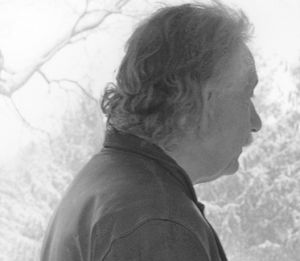Today, Elizabeth Green Musselman has penned a guest blog post that you’re bound to enjoy. Elizabeth is a professor and historian who works on the history of science, and she has recently launched a thoughtful podcast on the history of science, medicine, and technology. It’s called “The Missing Link” (iTunes — Feed — Web Site). Below, she highlights for us a range of podcasts that will appeal to everyday science enthusiasts. (If you’re interested in doing some guest blogging, drop us a line.) Thanks Elizabeth and take it away:
These can seem like dark days for those people who love science but who neither specialize in the field nor can quite stomach the gee-whiz factor that plagues so much popular science writing and broadcasting. Now that Stephen Jay Gould is cavorting somewhere in the Beyond with Charles Darwin, and ever since the New York Academy of Sciences put the ax to its inspired magazine The Sciences, where is a levelheaded lover of the sciences to turn?
The podcast world has begun to develop a niche market for just such listeners, that is, listeners who like their science relatively non-technical but still high-minded – listeners who think of science as a part of human culture, rather than an arcane temple. Not surprisingly, some of the best content comes from radio programs that have been re-released as podcasts. These include WNYC’s RadioLab, an hour-long show whose serious investigations on a theme (such as sleep or mortality) take on an intriguingly funhouse quality through the program’s inventive use of sound and the humorous interaction between co-hosts Jad Abumrad and Robert Krulwich. NPR has also released Krulwich’s solo reports in podcast form as Hmmm… Krulwich on Science.
Another longstanding NPR favorite, The Engines of Our Ingenuity, began broadcasting brief, thoughtful reflections on technology and culture in 1988. Written and hosted by John Lienhard, a retired professor of mechanical engineering and history at the University of Houston, the show now airs five days a week on 30 NPR affiliates in the U.S. The brief programs are also available in podcast form.
On the other side of the pond, the BBC 4’s long-running, popular show, In Our Time, frequently considers scientific topics and can also be heard in podcast form. Most recently, the program explored antimatter. On each hour-long program the host, Melvyn Bragg, keeps a panel of three scholars moving at a pace that skirts neatly between brisk and contemplative.
Finally, several podcasts produced by individuals have begun to appear, each of which considers science in context. Exploring Environmental History features Jan Oosthoek’s smart interviews with his fellow environmental historians and scientists, often focusing on how historical study can point us toward stronger environmental policy solutions. The most recent episode considers Arctic climate conditions both today and in the Little Ice Age. My own monthly podcast, The Missing Link, considers those fascinating moments in the history of science, medicine, and technology, when our intellectual and technical prowess rubs up against our very human dreams and failings. The most recent episode visits Berlin, Germany, where the gruesomeness of a pathology museum’s collection masks a centuries-long history of both inequitable medical care and brilliant microbiological research. The program also discusses the Berlin Phonogram Archive, one of the first attempts to record the world’s music for posterity, designed originally to demonstrate the evolutionary scale of primitive to civilized humanity.




